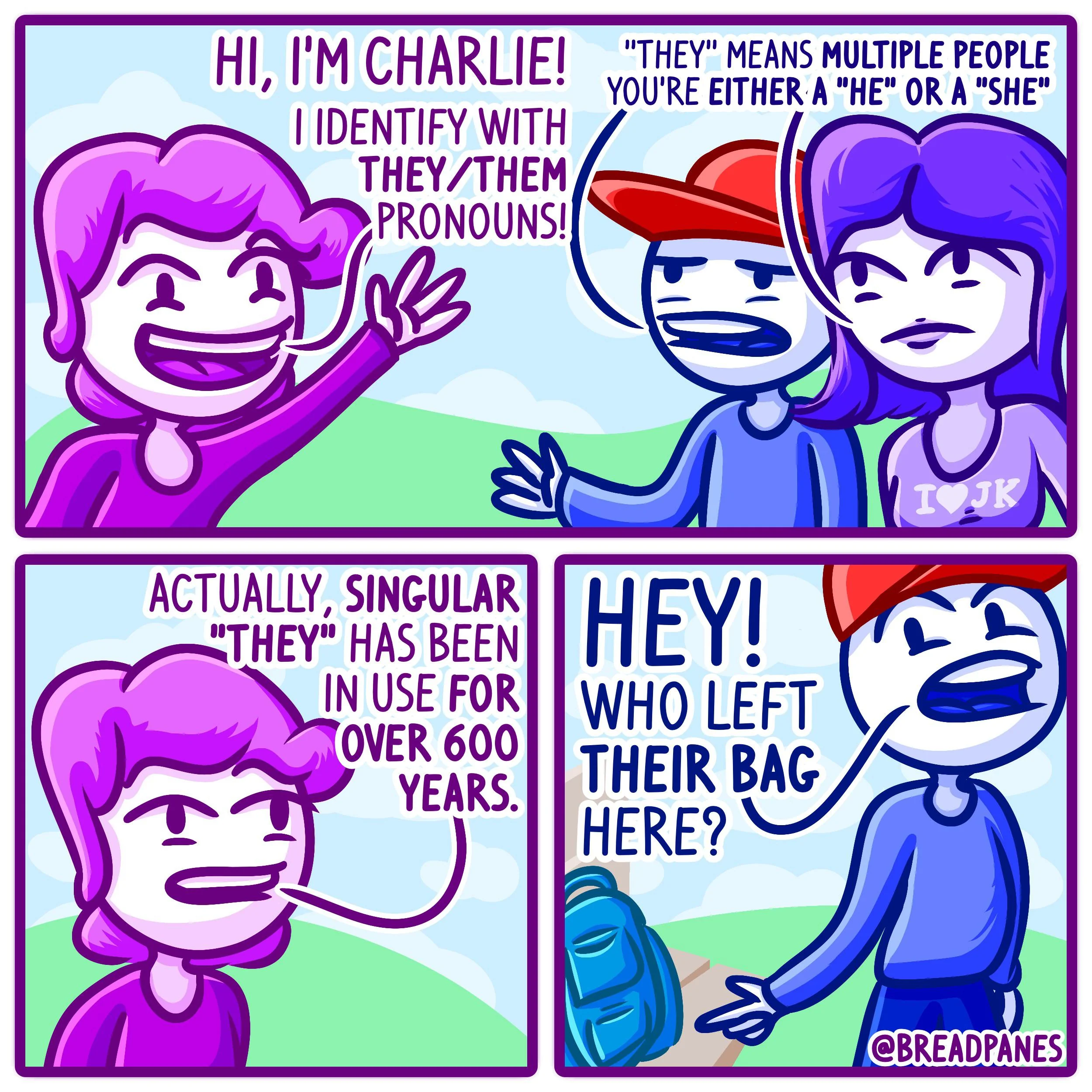They/Them
-
Outright banned, I'm guessing because blindly following rules by the book, but I think it's not a move in the right direction.
In Spain people are trying to make neutral words by placing
@wherea/oshould go in the gendered words, I think it never made to any documentation but it wasn't banned yet, at least. -
jesus
that sounds awful.
I love how teachers take it personally that you don't want to do mandatory work lol. anyway. glad you made it out of there.
-
Me too. Thanks.
-
I'm working in (local) French public service. We've developed apps with basic gender inclusive language (not iel, more like including genders in form titles and messages), a while before the government banned it from official communication.
As of now, nobody has done anything to remove that from the apps, because we don't see the point and we have way more important things to do to actually improve services.
-
It's a stupid excuse, use a different style guide going forward that uses "their" to refer to third person.
I'm glad they changed it, I'm still burnt out of the game because of design issues (board wipes, counterspells), repetitive cards with little innovation, and shitty business practices.
-
[email protected]replied to [email protected] last edited by
I get where you're coming from, but if you have a problem with the Chicago Manual of Style then you have a problem with me, and I suggest you let that one marinate.
-
There's no way to know whether the "he" is Dan or Steve.
This sentence is always ambiguous because there is only one sense of the word "he" but two possible objects. In my example the sentence is always ambiguous because there are two senses of the word "they". The two situations are completely different linguistic issues.
Your example is of a poor speaker. My example is of a poor pronoun choice.
The they/them pronoun isn't the problem in your example, the structure of the sentence is.
I disagree entirely.
-
[email protected]replied to [email protected] last edited by
you would also have the problem when saying ...
You would have a problem but it would not be the same problem as in my example. The problem is not because of the choice pronoun.
-
But art sounds like are. Is art singular?
-
But we're back to plural, they said thou is singular.
-
Reminder: this was over a decade ago.
-
From the dictionary: (archaic) second-person singular simple present indicative of be
So, yes?
-
Wait, was ‘Ye Olde …’ really still pronounced ‘The old’? Holy crap, why did nobody ever correct how stupid I am. I thought people just said things funny back then. Sigh
-
[email protected]replied to [email protected] last edited by
That's the annoying part of English. How we got here is perfectly logical for the most part, and that does absolutely nothing to make any of it make sense.
-
Why the question mark?
-
LOL people talk like this. I think perhaps you meant to say that nobody you know talks like this.
-
The conjugation of Be, "is" is not used in the second person (you, be it singular or plural) any more than "am" is. ("am" is first person singular form.)
The correct Be conjugations for second person are "art", and "are"
-
[email protected]replied to [email protected] last edited by
Thee has had thee mind blown?
-
It's "thee is tall."
He, she, thee.
-
Ahhh, that makes so much more sense.

